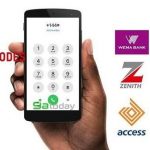Deposit Money Banks (DMBs) in Nigeria will now deduct charges for USSD transactions directly from customers’ mobile airtime, rather than from their bank accounts. This change, effective June 3, 2025, follows a directive from the Nigerian Communications Commission (NCC) enforcing the long-proposed End-User Billing (EUB) model.
Under the new arrangement, users of USSD banking services will be billed N6.98 per 120 seconds per session by their mobile network operator. Customers will receive a prompt to approve the deduction at the start of each session, and airtime will only be debited upon confirmation and if the bank is ready to process the service.
United Bank for Africa (UBA), in a notice to customers, explained that this adjustment aligns with the NCC’s directive and aims to streamline the process. “Charges for USSD banking services will no longer be deducted from your bank account,” the bank stated. “Instead, these charges will be deducted directly from your mobile airtime balance.”
UBA encouraged customers to use other digital platforms like internet banking and mobile apps if they prefer to avoid the USSD billing changes. First City Monument Bank (FCMB) also issued a similar notice, confirming the same billing structure and advising customers to consider alternative channels for banking services.
This transition is the latest step in resolving a long-running conflict between banks and telecommunications operators over USSD service debts. Banks have historically deducted USSD fees from customer accounts but failed to remit the payments to mobile network operators, leading to an industry debt crisis.
By December 2024, the Central Bank of Nigeria (CBN) and the NCC stepped in to address the mounting N250 billion USSD debt. Telecom providers had repeatedly threatened to halt USSD services due to unpaid obligations. In January 2025, the NCC ordered the suspension of USSD services for nine banks over continued non-payment.
Telecom giant MTN Nigeria confirmed in February that it had received N32 billion of the N72 billion owed by banks, signaling partial progress in the debt settlement process.
The shift to airtime billing is seen as a move to eliminate the back-and-forth between banks and telcos, ensure transparency, and secure payment for services rendered. For customers, it means greater visibility and control over charges but also places the cost burden directly on their mobile airtime.










